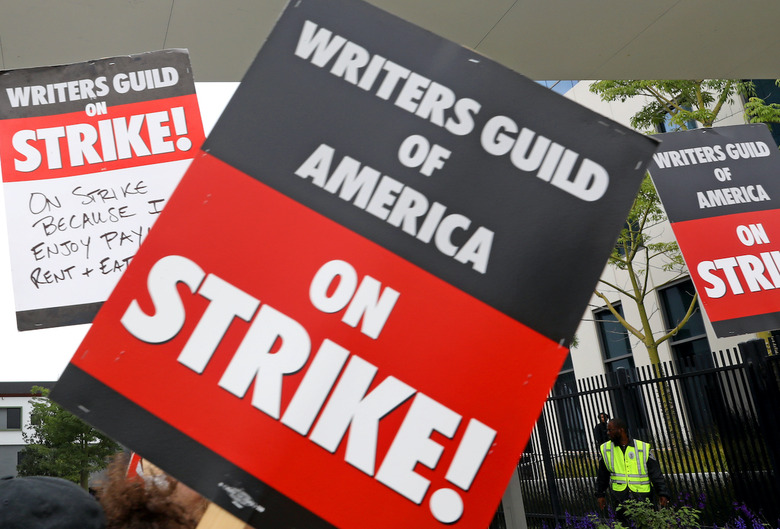Writers Strike Update: WGA And AMPTP To Resume Talks As Strike Nears Day 100
The Writers Guild of America (WGA) has confirmed it will sit down with the Alliance of Motion Picture and Television Producers (AMPTP) Friday to continue discussions in an attempt to end the writers strike that will soon hit its 100-day mark.
"The WGA has confirmed that it will sit down with the AMPTP on Friday to try to put an end to the writers strike that has been going on since May 2," the guild's negotiating committee wrote in a letter sent to its members Tuesday night and obtained by our sister site Deadline. "The AMPTP, through [President] Carol Lombardini, reached out to the WGA today and requested a meeting this Friday to discuss negotiations."
Continued the statement: "We'll be back in communication with you sometime after the meeting with further information. As we've said before, be wary of rumors. Whenever there is important news to share, you will hear it directly from us."
While the meeting doesn't necessarily mean the strike's end is in sight, it is a glimmer of hope and the first significant step forward for striking workers who have been on the picket lines for three months.
When the strike first began, TVLine heard from multiple sources that the guild was steeled to go at least six months if that's what was needed to make any headway on their multiple asks.
At the center of the negotiation: An acknowledgment of, and correcting for, the way that streaming has affected the work, compensation and working conditions of writers. "Over the past decade, the companies embraced business practices that slashed our compensation and undermined our working conditions," the Writers Guild of America West wrote in a tweet. "We are asking to restore writer pay & conditions to reflect our value to this industry. The survival of our profession is at stake."
Some of the association's demands include increased residuals for reuse markets, the reduction of "mini writers rooms" that greatly diminish the size of TV writing staffs, increased contributions to pension plans and health funds, and standardized compensation and residual terms for features released either theatrically or via streaming. In addition: enacted measures to combat discrimination and harassment and promote pay equity, and a strengthened regulation of options and exclusivity in television writer employment contracts.
